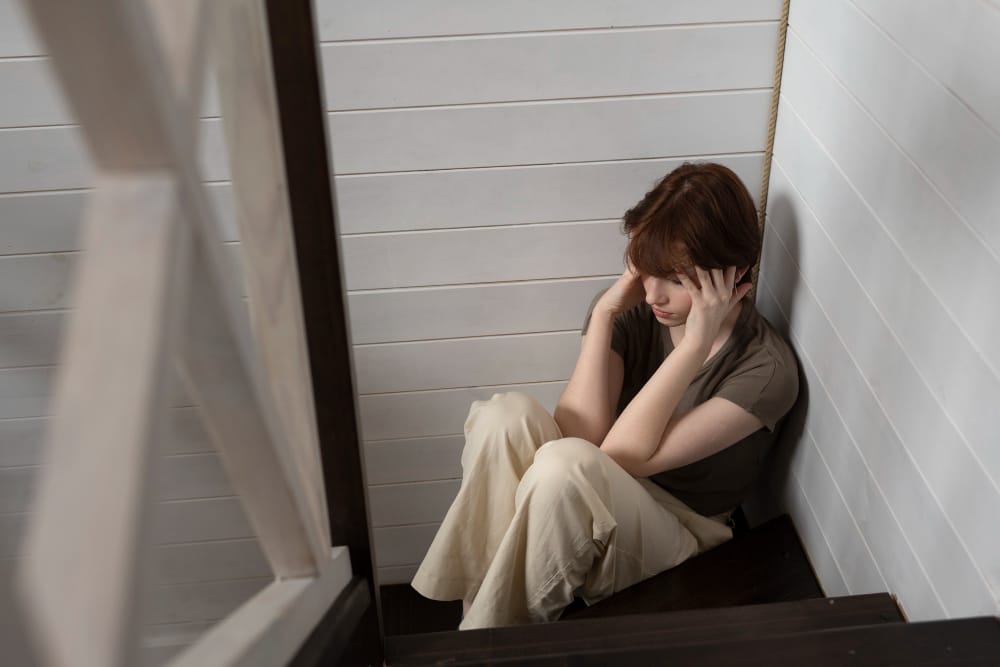Anxiety is often linked to its psychological signs like worry and fright, but can take a physio form as well. Although there are also other common symptoms involving trembling or shortness of breath, anxiety may manifest itself through less-known symptoms such as chronic pain because the body’s reaction to stress affects muscles and nerves that cause such discomfort.
In this blog, the close relationship between anxiety and chronic pain is looked at and examined as causes of this phenomenon. It also discusses what these symptoms implies for people suffering from it. To deal with anxiety symptoms and underlying causes go for anxiety treatment in New York, there will be a great difference in your overall health.
Understanding Anxiety
Anxiety refers to a complicated emotional state usually characterized by feelings of nervousness, anxious thoughts, and high blood pressure among other changes in the body. As a stress response, it evolves naturally as an alarm system that activates the fight-or-flight impulse within our bodies. Such mechanisms ready us either to confront danger or run away from it thereby giving rise to various physiological responses: racing heartbeats, tensed muscles, and faster breathing.
Nevertheless, chronic anxiety can create an overstimulation of this response resulting in consistent symptoms involving different parts of the body. Prolonged activation of the stress response deteriorates the functioning of organs causing headaches, muscle pains, and fatigue amongst others. Furthermore, it worsens existing conditions making the body susceptible to disease infections. Thus knowledge about anxiety and its aftermath is essential in managing its symptoms to promote general well being.
Common Physical Symptoms of Anxiety
Anxiety commonly manifests in physical symptoms like:
- Chest pain or tightness
- Headaches
- Dizziness
- Fatigue
- Digestive issues (diarrhea, nausea)
- Difficulty sleeping
Anxiety also affects the muscles. Muscle tension is a common response to stress, usually localized in parts like the shoulder blades, neck, and upper back. Further, anxiety can alter nerve reactions leading to sensations such as tingle or tingling or numbness. Such features help understand anxiety-related chronic pain. Therefore knowing these signs is pivotal as they could have a great impact on quality of life. Choose the anxiety treatment in New York for relief.
The Link Between Anxiety and Chronic Pain
Anxiety affects the body greatly and may result in physical manifestations other than those commonly known. This includes chronic pain which can be a disconcerting experience for individuals suffering from anxiety disorder. The mechanisms behind this phenomenon are deeply entrenched in the body’s stress response systems.
The Symptoms of Anxiety-Induced Physical Responses are:
- Heightened Alertness: The body’s senses sharpen to prepare for potential danger.
- Muscle Tightening: During the fight-or-flight response, muscles, particularly in the upper body, contract involuntarily.
- Stiffness and Pain: Muscle contractions around the neck, shoulders, and arms can lead to stiffness and subsequent chronic pain.
- Adrenaline Surge: Anxiety increases adrenaline levels, which boosts blood flow and nerve sensitivity.
- Numbness or Tingling: The heightened nerve sensitivity can cause numbness or a tingling sensation in the hands and fingers.
These reactions are the body’s natural defense mechanisms but can lead to discomfort if experienced frequently. It’s important to manage anxiety to prevent these physical symptoms from becoming chronic issues.
It is important for people who have these manifestations to find help from professionals who will help them differentiate between symptoms arising out of their condition with those caused by other ailments, hence seeking proper remedy for their problem.
Managing Anxiety-Induced Chronic Pain
Crafting a change in lifestyle, adopting home remedies, and being handled by health professionals are three strategies for managing chronic pain caused by anxiety. Stress and muscle tension can be reduced immensely if one alters his/her daily routines, such as exercising regularly, using relaxation methods, including deep breaths or meditations, and getting adequate sleep. Massage could soothe the body, warm baths loosen up muscles, and heat packs help alleviate pains when they occur at home.
The best option for persistent chronic pain is to go for professional treatments.
- Physical therapy helps strengthen muscles and correct posture therefore reducing the chances of muscle tension-related pain.
- Medications encourage the release of anxiety symptoms including its physical manifestations when used under the instructions of a doctor.
- Psychological therapies such as Cognitive Behavioral Therapy (CBT) are effective in managing thinking patterns responsible for anxiety and associated physical symptoms.
Chronic pain can also originate from stressful situations where it’s important to know when they manifest due to an anxiety condition or rather if they could indicate any other medical problem. It could be pertinent to have a medical examination done if the pain persists or becomes severe or is accompanied by other alarming signs like chest pains or difficulties in breathing. Consulting health care providers among them anxiety specialists would give an individual direction on what exactly he/she should do concerning this matter.
When to Seek Professional Help
It is critical to recognize when chronic pain may represent a serious condition. For instance, sudden severe unexplained chest pressure or pain may signal a heart attack or another emergency situation. In addition, healthcare practitioners should evaluate persistent chronic pain that continues despite rest or interferes with normal activities.
In case of persistent and severe symptoms consulting healthcare providers becomes necessary since they will determine whether it is related to anxiety conditions or some other causes. Neurologists who specifically deal with nerve problems could be visited as well as psychiatrists who are involved in mental health treatment in NYC where there are numerous experts available for an intensive examination followed by appropriate care.
An anxiety specialist in NYC is the right professional to handle any chronic pain related to anxiety through therapy, medication, or both, if needed to treat mental and physical symptoms. Getting in touch with the best individuals will therefore lead to complete well-being care.
FAQs About Does Anxiety Cause Chronic pain?
Q1. Is it true that anxiety can cause chronic pain?
Yes, indeed anxiety can lead to chronic pain. It is not popularly known as a symptom of anxiety, but this condition may involve muscle tension that may result in pain or discomfort in the arms. The source of this pain is one’s fight-or-flight response which will make muscles tighten up as part of the stress response.
Q2. Can anxiety cause chronic pain all over my body?
The tension caused by anxiety occurs all over the body but it often affects the shoulders, neck, upper arms because these parts are involved in a natural human reaction to stress involving shoulder shrugging or tightening. This leads to discomfort or even pain in areas related to the arms particularly if this feeling becomes chronic.
Q3. What does chronic pain related to anxiety feel like?
The symptoms of chronic anxiety are not always the same; it can be felt as strain, stiffness, or soreness in muscles mainly those found on the neck, shoulders, and head, as well as burning pricking, and numbness. The point is that anxiety may resemble other illnesses, hence it is better to consult your physician for physical examinations to be clear about this condition.
Wrapping Up!
Anxiety could be manifested physically, such as through hurting in the arm, neck or shoulders. In addition to that, understanding this connection is important because it highlights how mental health is tied to physical health directly. Therefore these types of symptoms cannot be taken lightly because they could represent underlying diseases necessitating further enquiry into one’s state of health from psychotherapists.
If you are someone who struggles with anxiety, think about seeing an anxiety therapist in NYC specializing in anxiety issues. Finding professional help will be helpful for you to overcome this disorder and learn how to manage its psychological sides as well as its physical manifestations Remember that holistic treatment of anxiety helps you lead a healthier more balanced life!






